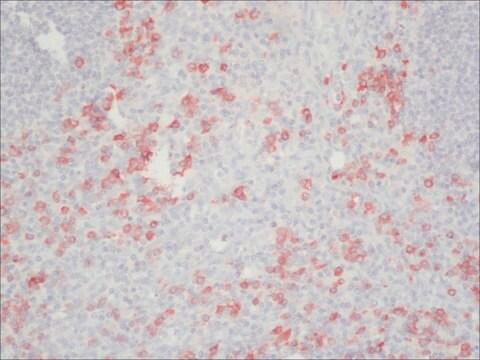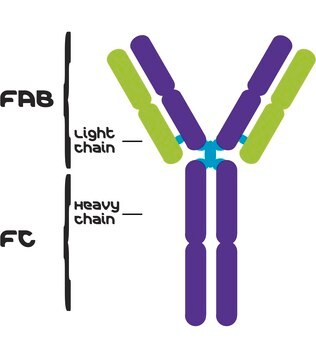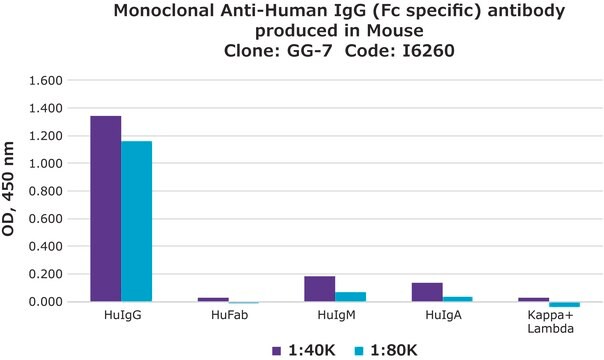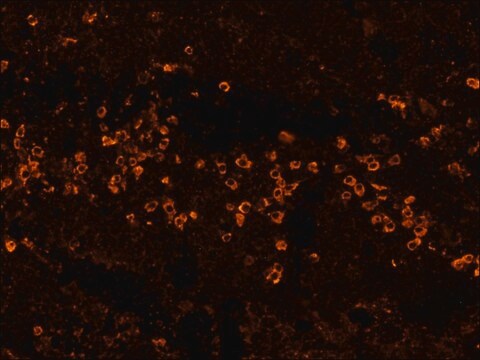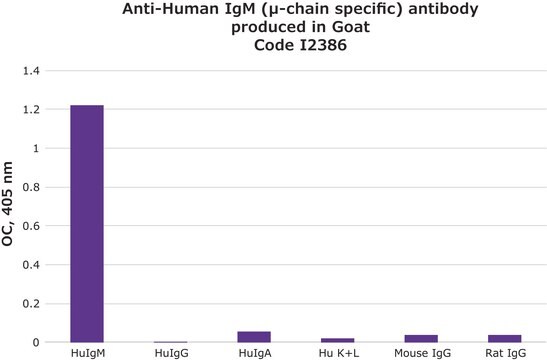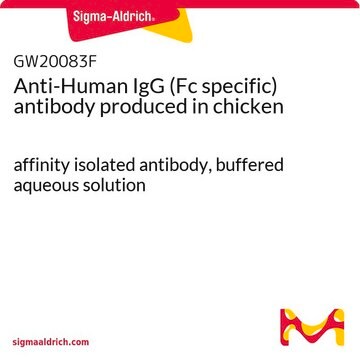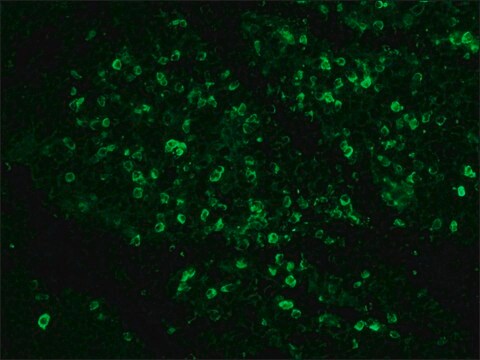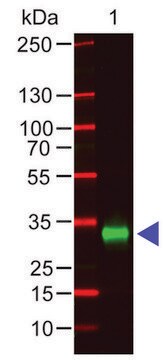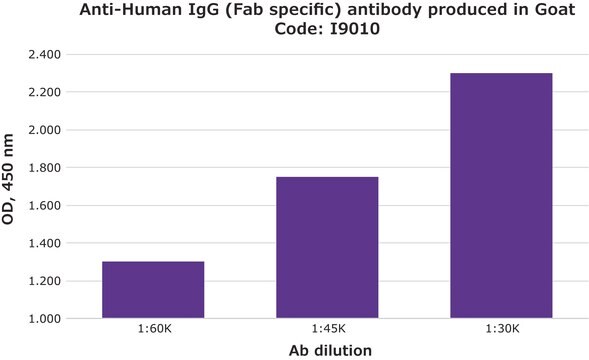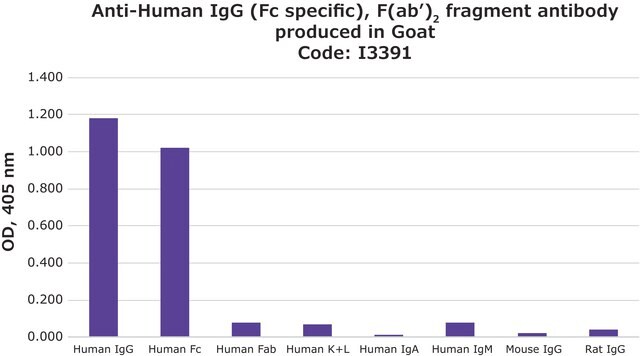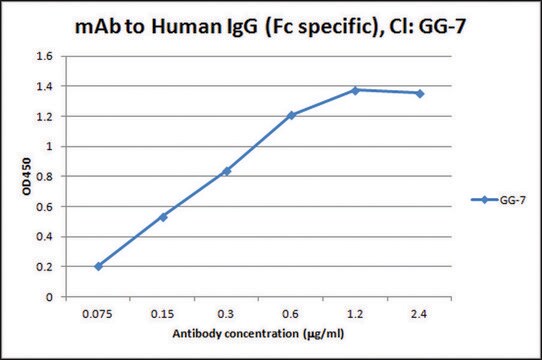I2136
Anti-Human IgG (Fc specific) antibody produced in goat
affinity isolated antibody, buffered aqueous solution
Sinónimos:
Anti Human IgG Fc - Anti-Human IgG (Fc specific) antibody produced in goat, Anti Human Igg, Anti Human Igg Antibody, Anti-Human Igg, Anti-Human Igg Fc, Goat Anti Human Igg
About This Item
Productos recomendados
biological source
goat
Quality Level
conjugate
unconjugated
antibody form
affinity isolated antibody
antibody product type
secondary antibodies
clone
polyclonal
form
buffered aqueous solution
technique(s)
indirect ELISA: 1:10,000
shipped in
dry ice
storage temp.
−20°C
target post-translational modification
unmodified
¿Está buscando productos similares? Visita Guía de comparación de productos
General description
Immunoglobulins comprise of two fragment antigen binding (Fab) and one fragment crystallizable (Fc) domains. The gene encoding IgG gene cluster is located on human chromosome 14.
Anti-Human IgG (Fc specific) antiserum is produced in goat using purified human IgG, Fc fragment, as the immunogen. Affinity isolated antibody is obtained from goat anti-human IgG antiserum by immunospecific purification which removes essentially all goat serum proteins, including immunoglobulins, which do not specifically bind to the Fc fragment of human IgG.
Specificity
Immunogen
Application
- in double-capture ELISA to measure antiglobulin responses in serum of transplant patients treated with CD52 monoclonal antibodies (CAMPATH-1G)
- in detection of IgG levels rheumatoid arthritis patients
- in small intestine biopsies
- in patients with acute myocardial infarction by immunoblotting
Enzyme-linked immunosorbent assay (1 paper)
Biochem/physiol Actions
Physical form
Storage and Stability
Disclaimer
¿No encuentra el producto adecuado?
Pruebe nuestro Herramienta de selección de productos.
Storage Class
12 - Non Combustible Liquids
wgk_germany
WGK 3
flash_point_f
Not applicable
flash_point_c
Not applicable
ppe
Eyeshields, Gloves, multi-purpose combination respirator cartridge (US)
Certificados de análisis (COA)
Busque Certificados de análisis (COA) introduciendo el número de lote del producto. Los números de lote se encuentran en la etiqueta del producto después de las palabras «Lot» o «Batch»
¿Ya tiene este producto?
Encuentre la documentación para los productos que ha comprado recientemente en la Biblioteca de documentos.
Los clientes también vieron
Artículos
Antibody-based serology tests are useful in identifying subjects with an adaptive immune response to the SARS-CoV-2 virus. Anti-human immunoglobulin antibodies allow for quick and simple, yet reliable assays with easy readouts and can also be adapted for high-throughput screening.
Nuestro equipo de científicos tiene experiencia en todas las áreas de investigación: Ciencias de la vida, Ciencia de los materiales, Síntesis química, Cromatografía, Analítica y muchas otras.
Póngase en contacto con el Servicio técnico
